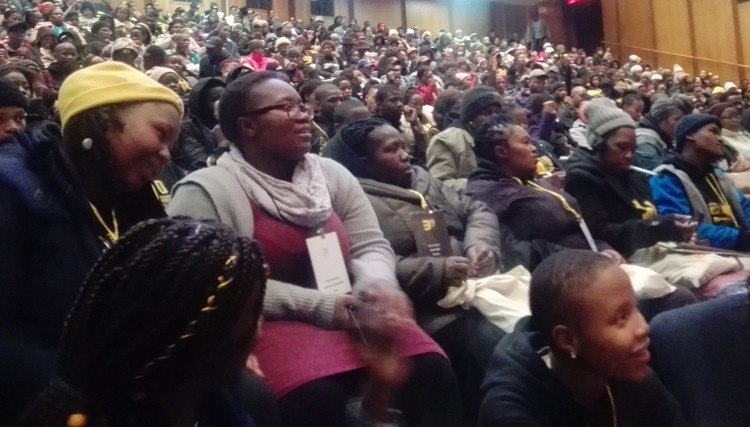
Hundreds of learners and Equal Education members are attending the organisations’s four day congress at Wits University’s campus in Parktown. Photo: Supplied by Equal Education.
3 July 2018
Equal Education (EE) is hosting its third national congress at the Wits University Education Campus in Parktown this week.
On Monday night, the event began with a panel discussion by learner members and representatives from ActionAid Women’s Rights Programme, FeesMustFall and Sonke Gender Justice. The discussion included awareness around sexual harassment and how to deal with it.
In April, General Secretary of EE Tshepo Motsepe resigned after allegations of sexual harassment were made against him by a female staff members. The EE National Council appointed an independent team to investigate the allegations.
In May, Doron Isaacs also resigned as EE’s treasurer following reports in the Mail & Guardian newspaper of alleged sexual harassment.
In June, Luyolo Mazwembe, head of national organising at EE was found guilty of sexual harassment and was dismissed following an investigation.
On Monday, EE’s outgoing learner representative Londokuhle Mnguni said, “Most of us didn’t know what sexual harassment was because we were not informed. The first thing we thought of was rape … We were allowing it to happen because we didn’t know what it looked like.”
Mnguni suggested that EE educate its members on what sexual harassment is and how to best respond to it in their daily lives. “For example many of us didn’t know that catcalling on the street is a form of sexual harassment because it has become so normal … If we know about the different forms of sexual harassment, we will be able to report it.”
FeesMustFall’s Simamkele Dlakavu told the group that the movement fell apart because men were seen as better leaders than women. She said cases of sexual harassment and assault were not addressed. “Representation matters but it is not enough. We can have a 50/50 split of men and women in power. This does not necessarily change the experience of black women,” said Dlakavu.
She said organisations needed to be proactive in ensuring that women felt safe in social justice movements.
The congress continues on Tuesday and is expected to end on Thursday when new leadership will be elected.